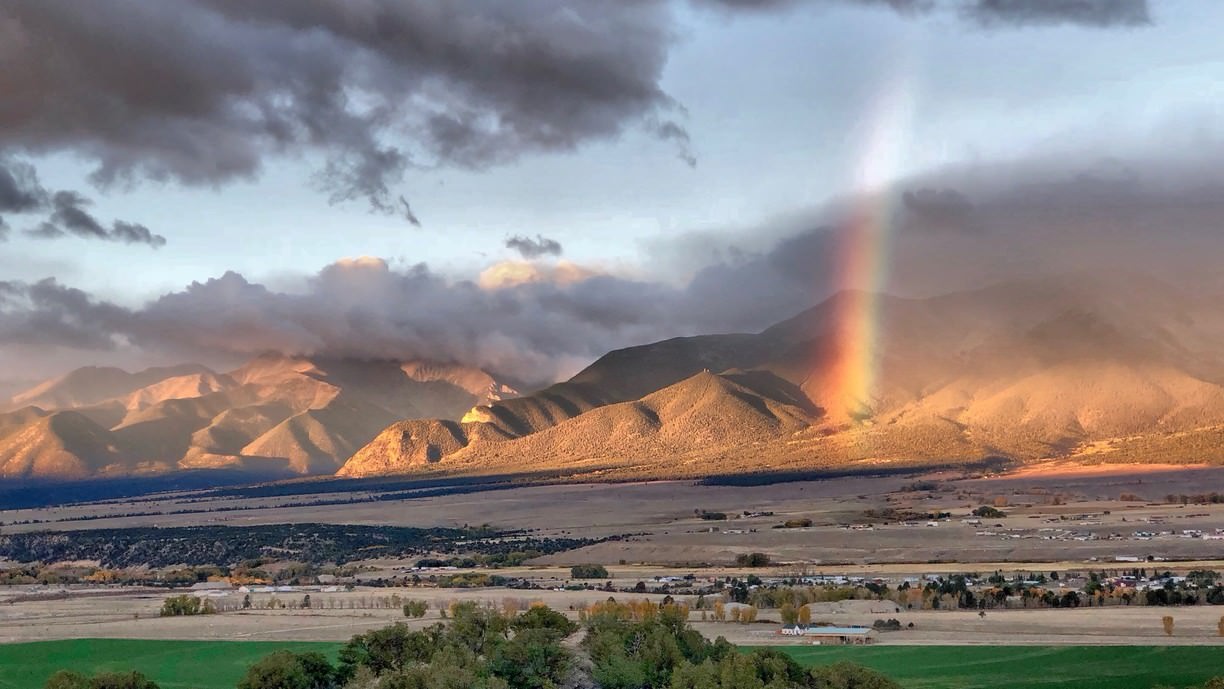I returned this morning from a Boy Scout campout on the Upper Arkansas River Valley, just north of Salida. We had eight or nine scouts with us throughout the weekend as the Angel of Shavano looked down upon us from a tad over 14,000 feet. Beautiful weekend, despite having to chip through the ice on our drinking water in the morning.
I helped our Scoutmaster lay out an orienteering course while the Scouts hung around the campfire, swinging sticks at each other. I’m sure he assumed my 30-year military career gave me plenty of experience in this area and since the adult who had prepped the Scouts on compass use (a retired Green Beret) was out of country, he was hoping for some help.

He was right about my experience. Wrong about my aptitude.
Turns out, it had been a few years since I’d been through my aircrew survival
training refresher, and I was more than a little bit rusty. OK—lots of years.
“What’s your pace?” he asked.
Now I’m not bad in the jogging department and usually train in the 8:10-8:40 minutes for a mile. But even as I silently nodded, I knew that wasn’t what he was talking about.
He must have sensed my hesitation. “You know, how many paces does it take for you to go 100 meters? So we can set this course.”
OK. It was coming back to me now. If you’re going to follow a 270-degree bearing for 150 meters, you need to know how many steps that is. “About
a 100, I guess.”
He gave me a dubious look. “Let’s pace off a 100 and see what it looks like.”
I started walking, taking what I figured was 39-inch steps, and stopped at 100. He pulled up next to me and shook his head. “I still got ten to go. Are you counting every step or every other step? We were taught to count every time your right foot hits the ground.”
Shit. And so it went. By the time we pulled the compasses out, I had recovered my sense of bearing (get it?) and could shoot an azimuth. But I quickly realized that the last time I’d used a compass in this manner was
before I started using reading glasses. How can you read those tiny numbers? I was pulling out the IPhone to check my work (this, after I pulled out my GPS to check my 100 meters.)
It all worked out. Within minutes, I had my 100-meter pace (60 steps for me) and was reviewing orienteering skills with the Scouts. By the end of the hour, the Scouts were setting up their own courses. I had fun. The Scouts had fun (not as much as swinging dead tree branches at each other, but how can you compete with that?)
Driving home, the scent of my two boys tea-bagging campfire and body odor throughout the Subaru, I reflected on what I had learned.
“How to use a frikkin’ compass…again” said my dominant side (the smart ass.)
But it was more than that.
The first thing is that not every skill is like riding a bike. Sure, after 4,000 or so flying hours, I can keep an airplane from running into the ground. But unless I’ve been operating its flight computer for a couple hundred hours (ie practicing and training), I’m going to have a hard time getting us where we need to go and talking to who we need to talk to. The same held true for my compass skills. If I really want to be able to land navigate with magnetic north, I need to practice those skills more than once every twenty years. And before you say, “Why not just use the phone?” I’ll remind you that the freezing temperatures in the Rockies can take down IPhone and GPS batteries rather quickly.
And reading about these skills isn’t enough. You’ve actually got to “do” the skills you think you remember, if you want to perform them at crunch time. That’s why CPR training is an annual requirement for many organizations.
Maybe it should be semi annual. Physically “doing”; whether it’s pressing a pen to paper, snowboarding, or using a lensatic compass, will burn the skill into your brain much faster and deeper than reading about it.
Finally, exercise these skills in public. If you’ve maintained your proficiency, you may have the opportunity to teach others. And there’s no better way to hone your craft than by teaching. If you haven’t kept up with your skills, exercising that in public is the best way to ensure you’ll get it right. Most people don’t like to fail, but no one likes to fail in front of others. You’ll pay more attention, try harder, and learn better if you’re doing all this with or in front of others.
It’s not about the compass. It’s about reviewing what you need to know and refreshing those skills. If you’re a writer, it means mixing in “Character” or “Setting” seminars with your “How to Make Your Website Sizzle” class. Going back to the basics.
Readers of fiction should throw in some non-fiction. You had to read and analyze that stuff in your past. Have you lost those skills?
If you’re a runner, it means getting out there for a race or group run and pushing the edges of your comfort zone. To be a better runner.
As Tommy Shaw of Styx wrote:
“Get up, get back on your feet. You’re the one they can’t beat and you know it…”

Leave a Reply